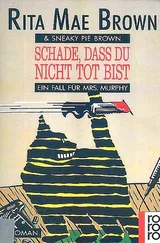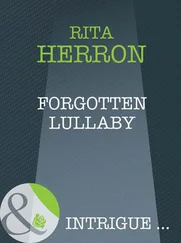Rita Monaldi - Imprimatur
Здесь есть возможность читать онлайн «Rita Monaldi - Imprimatur» весь текст электронной книги совершенно бесплатно (целиком полную версию без сокращений). В некоторых случаях можно слушать аудио, скачать через торрент в формате fb2 и присутствует краткое содержание. Жанр: Исторический детектив, на английском языке. Описание произведения, (предисловие) а так же отзывы посетителей доступны на портале библиотеки ЛибКат.
- Название:Imprimatur
- Автор:
- Жанр:
- Год:неизвестен
- ISBN:нет данных
- Рейтинг книги:5 / 5. Голосов: 1
-
Избранное:Добавить в избранное
- Отзывы:
-
Ваша оценка:
- 100
- 1
- 2
- 3
- 4
- 5
Imprimatur: краткое содержание, описание и аннотация
Предлагаем к чтению аннотацию, описание, краткое содержание или предисловие (зависит от того, что написал сам автор книги «Imprimatur»). Если вы не нашли необходимую информацию о книге — напишите в комментариях, мы постараемся отыскать её.
Imprimatur — читать онлайн бесплатно полную книгу (весь текст) целиком
Ниже представлен текст книги, разбитый по страницам. Система сохранения места последней прочитанной страницы, позволяет с удобством читать онлайн бесплатно книгу «Imprimatur», без необходимости каждый раз заново искать на чём Вы остановились. Поставьте закладку, и сможете в любой момент перейти на страницу, на которой закончили чтение.
Интервал:
Закладка:
Now, I should explain that between each floor there were two flights of stairs. At the top of each of these was a landing. Well, on the landing between the second and third floors was the little door that gave access to the closet where the valuables were kept.
I made sure that no one was in the vicinity, then entered. I drew out the stone, set into the wall, behind which lay the little coffer. I opened it. Nothing was missing: neither money nor the notes of deposits countersigned by customers. I grew calmer.
"Now, the question is: who has taken Master Pellegrino's keys?"
The voice was Abbot Melani's. He had followed me. He entered and closed the door behind him.
"It would appear that we have a thief among us," he commented, almost amusedly. Then he stopped, looking alarmed: "Silence. Someone is coming." And he nodded in the direction of the landing.
He signalled to me to look outside, which I did most unwillingly. I heard vague notes from Devize's guitar rising from the ground floor. Nothing more.
I invited the abbot to quit the closet forthwith, desiring as I did to keep our contacts to a minimum. While he was slipping out through the narrow doorway, I saw him look at the little coffer with a rather worried expression.
"What is it now, Signor Abbot?" I asked, striving to hide my growing anxiety and to restrain the discourteous tone that was rising to my lips.
"I was thinking: it makes no sense that whoever stole the bunch of keys should have taken nothing from the strong-box of the inn. Are you really sure that you looked through it thoroughly?"
I went back to see: the money was there, the deposit notes too; what else should there be? Then, I remembered: the little pearls which Brenozzi had given me.
Gone was the Venetian's bizarre and fascinating gift, which I had jealously concealed among the other valuables. But why had the thief taken nothing else? After all, there were considerable sums of money there, far more visible and readily exchangeable than my little pearls.
"Calm down. We shall now go down to my apartment and there we shall examine the situation," said he.
Then, seeing that I was about to refuse, he added: "If you want to see your pearls again."
Reluctantly, I consented.
Once in his chamber, the abbot invited me to take a seat. He was aware of my agitation.
"We are faced with two possibilities," he began. "Either the thief has already done all that he intended to, in other words, to steal your pearls, or else he did not succeed in completing whatever it was that he planned. And I tend towards the second option."
"Why? I have already told you what Cristofano explained to me: those pearls have to do with poison and with seeming death. And perhaps Brenozzi knows something."
"For the time being, at least, let us drop the matter, my boy," said he, laughing. "Not that your little pearls are worthless, on the contrary; nor that they lack the powers which our physician ascribes to them.
But I opine that the thief had something else to do in that closet. It is halfway between the second and the third floor; and ever since Master Pellegrino's inert body was found, there has been so much coming and going in that vicinity, that he has been unable to operate at ease."
"So?"
"So, I think that the thief will have more to do in that cupboard, and that he will act under cover of night. No one yet knows that you have discovered the theft of the keys. If you do not warn the lodgers, the thief will think that he can operate in peace."
"Very well," said I, acquiescing at last, albeit diffidently. "I shall let the night pass before I put them on their guard. Pray heaven that no ill befalls them."
I looked obliquely at the abbot and decided to put to him the question which I had been holding in reserve for some time: "Do you think that the thief killed Signor di Mourai and perhaps tried to do the same to my master?"
"Everything is possible," replied Melani, inflating his cheeks curiously and pursing his lips. "Cardinal Mazarin was wont to say to me: thinking bad thoughts, one commits a sin; but one always guesses rightly."
The source of my diffidence about him must have been clear to the abbot, yet he asked no questions and continued imperturbably: "As regards Mourai, this morning I was about to propose to you that we undertake a little exploration, but then your master fell ill."
"What do you mean?"
"I think the time has come to search the rooms of the poor old man's two travelling companions. And you have copies of all the keys."
"You intend to enter Dulcibeni's and Devize's apartments by stealth? And you want me to help you?" I asked in consternation.
"Come, do not look at me like that. Think about it: if anyone is to be suspected of having something to do with the death of the old Frenchman, it must indeed be Dulcibeni and Devize. They arrived at the Donzello together with Mourai, coming from Naples, and have stayed here for over a month. Devize, with his tale of the Cocomero, has shown that he probably has something to hide. Pompeo Dulcibeni even shared his chamber with the dead man. They may well be innocent, but they surely know more than anyone else about the dead man."
"And what do you hope to find in their apartments?"
"I shall not know until I have entered," he replied coldly.
Once again my ears resounded with the horrible things which Devize had uttered about Melani.
"I cannot give you a copy of their keys," said I, upon reflection.
Melani understood that it would be useless to insist and remained silent.
"For the rest, however, I am at your service," I added in a gentler tone, thinking of my lost pearls. "I could, for instance, put some questions to Devize and Dulcibeni, and try to make them talk…"
"Please, please… You would obtain nothing from them and you would put them on their guard. Let us move step by step: let us first endeavour to understand who it was that stole the keys and your pearls."
Atto then explained his idea to me: after dinner, we would watch over the stairs from our respective chambers, I on the third floor and he on the second. We would pass a string between my window and his (our chambers being one exactly above the other) and both would tie one end to a foot. When one of us noticed something, he would pull hard, several times, to make the other run and thus to prevent the thief's escape.
While he spoke, I weighed up the facts. The knowledge that Brenozzi's pearls might be worth a fortune had in the end disheartened me: no one had ever given me anything so precious. Perhaps I should bear with Abbot Melani a little. I ought, of course, to keep my eyes open: I must not forget the dire judgements which I had heard concerning him.
I assured him that I would follow his instructions, as moreover-I recalled in order to reassure him-I had already promised last night during our singular and lengthy colloquy. I mentioned vaguely that I had overheard three guests at the inn discussing Superintendent Fouquet, whose name the abbot had mentioned to me the evening before.
"And what did they say?"
"Nothing that I can recall with any precision, as I was busy tidying up the kitchen. They simply caused me to remember your promise to tell me something about him."
A gleam appeared in Abbot Melani's penetrating pupils: he had at last found the source of my sudden diffidence towards him.
"You are right," he said, "I am indebted to you."
His regard suddenly grew distant, lost in past memories. He sang sotto voce, in melancholy tones:
Ai sospiri, al dolore,
Ai tormenti, alpenare,
Torna o mio cuore…'*
"There," he added, seeing my questioning expression, "thus would my master, Seigneur Luigi Rossi, have spoken to you of Fouquet. But since it is now my turn to do the telling, and we must wait until dinner time, make yourself at ease. You ask me who Nicolas Fouquet was. I tell you, he was before all else a man vanquished."
Читать дальшеИнтервал:
Закладка:
Похожие книги на «Imprimatur»
Представляем Вашему вниманию похожие книги на «Imprimatur» списком для выбора. Мы отобрали схожую по названию и смыслу литературу в надежде предоставить читателям больше вариантов отыскать новые, интересные, ещё непрочитанные произведения.
Обсуждение, отзывы о книге «Imprimatur» и просто собственные мнения читателей. Оставьте ваши комментарии, напишите, что Вы думаете о произведении, его смысле или главных героях. Укажите что конкретно понравилось, а что нет, и почему Вы так считаете.












